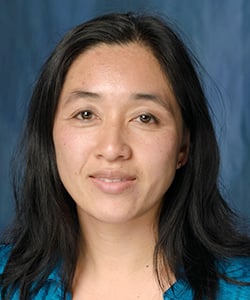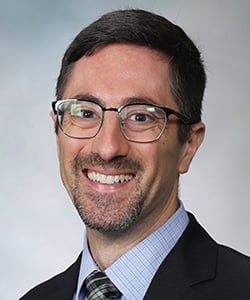"Redefining the Role and Value of Regional Anesthesia"

Dr. Linda Le-Wendling
Program Co-Chair

Dr. Steven Porter
Program Co-Chair
“In a sense, this is a military history—one in which the adversary is formless, timeless, and pervasive.” –Siddhartha Mukherjee
These 3 words—formless, timeless and pervasive—can as aptly be used to characterize PAIN as they were used to describe cancer. The intensity and trajectory of pain is challenging to predict and the source of the pain at times difficult to trace. And thus, it is even more crucial that we as clinicians managing pain understand the strengths and limitations of the analgesic armamentarium we have at our disposal.
We live in an era of contradicting goals, where Enhanced Recovery After Surgery and increasing ambulatory care forces our hand to minimize the side effects of regional anesthesia at the expense of the use of opioids, even though just a little less than a decade ago, an opioid epidemic was declared.
No other time has information been so easily accessible, yet we as clinicians are struggling to translate this wide expanse of audiovisual data into effective and meaningful clinical practice.
And so, we craft our 51st Annual Regional Anesthesiology and Acute Pain Medicine Meeting with three goals in mind:
- To explore the potential and define the limits of different regional anesthesia techniques
- To provide the audience access to faculty who are at the forefront of the science, education, and leadership in our subspecialty, and
- To focus on value-added care that emphasizes analgesic effectiveness.
This year’s theme, “Redefining the Role and Value of Regional Anesthesia,” invites us to confront the contradictions, complexities, and possibilities that define our field today.
Our plenary session topics were selected to prompt discussion and challenge some currently held beliefs. We invite three guest surgeons (an orthopedic trauma surgeon, a sports surgeon, and a peripheral nerve surgeon) to bring us their insights. We bring international faculty from Europe and Asia to introduce us to a different perspective on acute pain management. We welcome Patrick Tighe, MD, MS, with his passion for AI innovation, quality and patient safety, and research as a special speaker.
We provide 6 Ask the Experts panels for you to interact with experts on challenging clinical topics. Our extremely popular parallel PBLD sessions will once again be offered, with over 40 topics to choose from in a more relaxed setting.
No other time has information been so easily accessible, yet we as clinicians are struggling to translate this wide expanse of audiovisual data into effective and meaningful clinical practice.
New additions to the workshops this year will be subspecialty workshops, where participants can learn to perform blocks that would increase their effectiveness in the ambulatory, trauma, cardiovascular, and pediatric setting. We continue to offer popular workshops such as cryoneurolysis, mixed-reality simulation, and block packs. For those experts who have learned all the basic techniques and are ready to expand their repertoire, we offer a masterclass of blocks taught by the best of our experienced instructors.
We invite medical providers of all backgrounds to submit abstracts to share your discoveries and knowledge with us. It is in our poster sessions that we will be introduced to the most leading-edge research. Abstract submitters will have the chance to be one of eleven posters selected to present their research on the podium among our ASRA Pain Medicine faculty and showcase their amazing work.
We would love for individuals, no matter their subspecialty, with a desire to learn and share your experiences about regional anesthesia and acute pain management to join us in Phoenix, Arizona, on April 16-18, 2026 for 3 days of engagement, discussion, pontification, collaboration, and socializing!
Linda Le-Wendling, MD, and Steve Porter, MD
#ASRASPRING26 Meeting Chairs